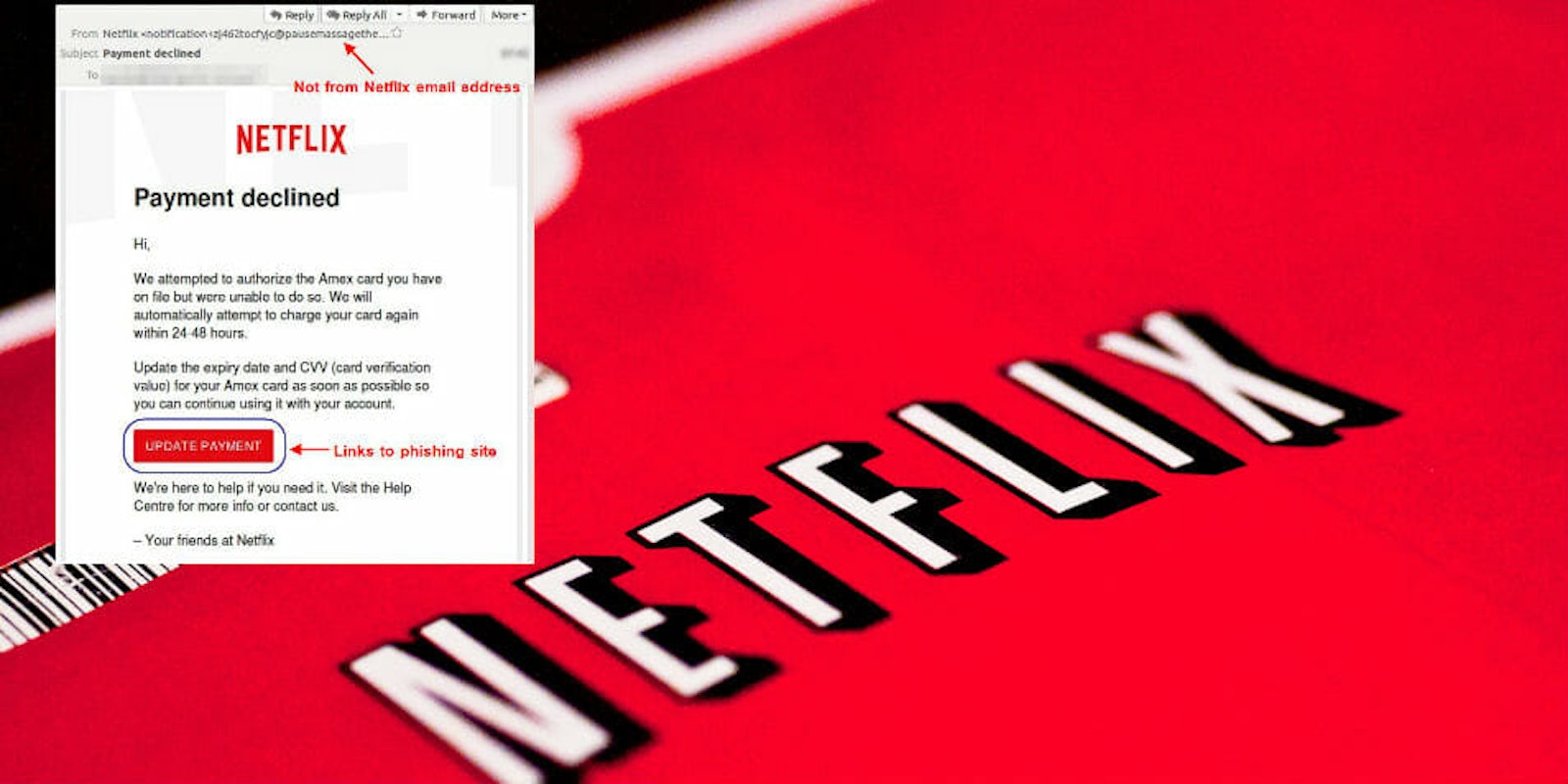Stay away from unexpected Netflix emails: They may be tricking you into handing over your credit card information.
Netflix is warning customers about what may be the most sophisticated phishing scam yet. First discovered by Australian email security company MailGuard, the zero-day scam uses Netflix branding and webpage style to coax users into giving away credit card details. The email shows “Netflix” as the sender and the subject area alerts recipients that their card information was declined.
“Hi. We have attempted to authorize the Amex card you have on file but were unable to do so,” the email reads. “We will automatically attempt to recharge your card again in 24-48 hours. Update the expiry date and CVV (card verification value) of your Amex card as soon as possible so you can continue using it with your account. We’re here to help if you need it. Visit the Help Centre for more info or contact us. – Your Friends at Netflix.”
An image of the phony email was posted to Twitter by the New South Wales Police Force in Australia.
The are some Stranger Things going on with this ‘Netflix’ email https://t.co/fchkUSkcEP pic.twitter.com/qc7LWgwEsX
— NSW Police Force (@nswpolice) January 10, 2018
The deceptively pleasant message includes an “update payment” button that directs users to a credit card information portal with blanks for email address, card number, expiration date, and CVV number. Once a user submits their information, the scam redirects them to Netflix’s homepage to ease any potential concerns. The longer users are unaware of the theft, the longer scammers can continue taking advantage of any ill-gotten personal information, so keeping people in the dark is just as important as gaining access to their info in the first place.
Reports say “thousands” of users have been affected so far. The scam has reached people in Australia and the U.K., but it’s not clear if any U.S. customers have received any of these emails.
We’ve seen this very scheme before. In September, an email circulated that told customers their accounts were disabled because of a billing error. It too asked users to update their credit card and bank account info. Compared to that attempt, this one is miles ahead in terms of its ability to convince victims. Nothing is misspelled, the spacing is spot on, and its phrasing isn’t nearly as aggressive (though “as soon as possible” is a definite red flag).
There are several best practices you can follow to protect yourself from these increasingly effective attacks. First, avoid clicking links in emails unless you’re 100 percent certain they’re legit. Also, never click on a shortened URL from an unverified source. For more on phishing attacks and ways to protect yourself, check out our comprehensive guide.
A spokesperson at Netflix didn’t address the latest incident directly but provided the Daily Dot with a generic statement about phishing attacks.
“We take the security of our members’ accounts seriously and Netflix employs numerous proactive measures to detect fraudulent activity to keep the Netflix service and our members’ accounts secure. Unfortunately, scams are common on the internet and target popular brands such as Netflix and other companies with large customer bases to lure users into giving out personal information.
“Members who want to learn more about how to keep their personal information safe against malicious online activity can go to netflix.com/security or contact Customer Service directly.”


